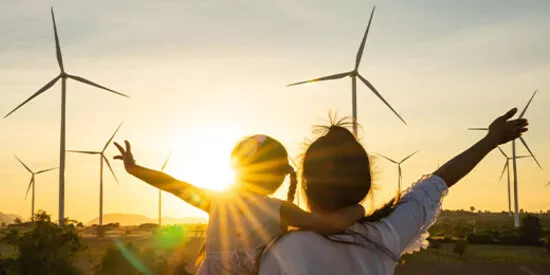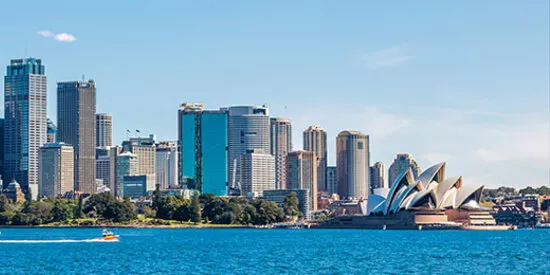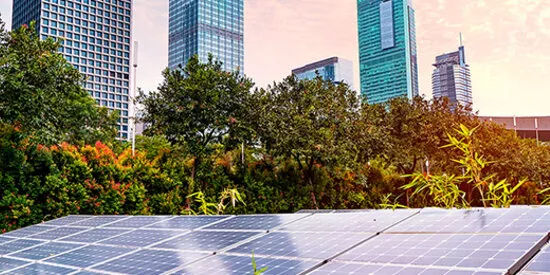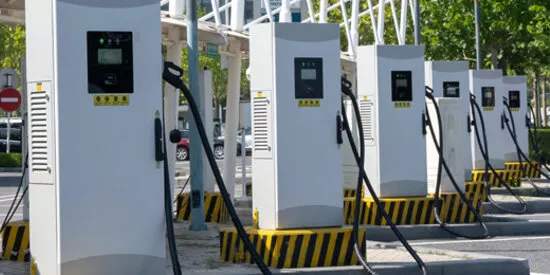
The race to net zero: How Asia Pacific can accelerate its energy transition
Last year, marked by the COVID-19 pandemic, was a massive shock for all populations and economies worldwide. Yet it is encouraging to see that despite this critical situation - or maybe because of it - governments, corporates and individuals around the world are putting more focus on building a sustainable planet and setting a clearer path towards reaching a carbon net-zero global economy.
By Gaelle Olivier, Chief Executive Officer for Asia Pacific, and Daniel Mallo, Head of Natural Resources and Infrastructure for Asia Pacific at Societe Generale
Asia Pacific has a large role to play in building a carbon net-zero economy.
Since the start of the industrial era, economic development has been strongly correlated with energy consumption. This applies to Asia Pacific as well, with the key difference that development is taking place much more rapidly and that the region has not yet achieved its full economic potential. Asia already accounts for more than 60% of the world’s population and over 40% of global GDP. The GDP number is a mighty figure that is set to grow to between 50% and 60% in just the next 20 years.
The key challenge for the coming years, therefore, is somehow to demonstrate that correlation is not causality and that we can continue to grow the economies worldwide, and notably in Asia Pacific, without a similarly large increase in energy usage.
An energy transition hub and leader

Thanks to strong government commitments and public support in countries that include China, South Korea, Japan and New Zealand, we are witnessing a pathway toward carbon neutrality. Home to 45% of global investment in the transition to cleaner power, Asia Pacific is establishing itself as a leader in the race to net zero. China alone accounts for one third of the world’s investment in decarbonization, a significant share that will continue growing.

By 2040, we expect that the region as a whole will be home to more than two thirds of the world’s solar installed capacity, more than half of wind installed capacity and half the world’s electric vehicle sales.
Banks have a key role to play in supporting the energy transition and facilitating sustainable financing. At Societe Generale, we have made this one of our Group’s strategic priorities, embracing the energy challenges and advising our clients on the best ways to transition to new forms and new usages of renewable power. This is not just an opportunity – it is a necessity.
A mosaic of markets
While Asia Pacific is home to the largest renewable energy market in the world, it is also a region where coal-fired power plants are still being built. This makes for a very mixed picture, as the region is a mosaic of markets at very different stages in their energy transition journey.
However, most have a few factors in common.
Demand growth: Most economies in the region are expected to grow at a healthy pace, in the range of 5-7% per annum, and with demand for energy typically outstripping GDP growth, it creates a highly conducive environment for investments in energy transition projects.
Demand recovery: Asia Pacific countries have led the world in easing or exiting COVID-19 restrictions. The level of demand recovery has been spectacular in countries that have exited lockdowns early on, such as China or South Korea, where we have seen demand rebound to levels similar or at times even slightly higher than pre-COVID-19 levels.
Unmet demand: Hundreds of millions of people in Asia still do not have access to electricity. There is an incredible opportunity to meet that unmet demand through carbon-neutral resources and building local micro grid solutions.
Four priority areas
Over the next two decades, the region must focus on:
 Renewables
Renewables
We clearly see an acceleration across the region in investments into renewable energy, including solar, onshore and offshore wind, geothermal and hydro.
 Mobility
Mobility
This is a key component in the race to net zero. Some markets in Asia will be ahead of the curve in terms of the deployment of electric vehicles, charging infrastructure and intelligent mobility solutions.
 Hydrogen
Hydrogen
Asia is likely to be at the forefront of the hydrogen revolution. North Asia markets such as China, Japan and South Korea will emerge as key demand centres, while markets like Australia are ideally positioned to produce green hydrogen.
 Energy efficiency
Energy efficiency
Using energy in smart ways and conserving energy is a critical component of progressing towards net-zero; Asia, with its rapidly growing middle-class population, will play a key role in this effort.
Financing in action
Capital must be mobilized and channelled in the right direction if the region is to realise its energy transition potential and contribute to building a more sustainable planet.
We do not subscribe to the view that there is a funding gap for high-quality energy transition projects. We have yet to come across a solid energy transition project that has faced difficulties in attracting capital. At times we actually see excess capital chasing a dearth of investable projects.
Even last year during the market disruption caused by COVID-19, and especially the extreme volatility in the second quarter, we found capital to be readily available and the energy transition sector stood out from other asset classes in its ability to secure both equity and debt funding.
Investors are clearly favouring cleaner power as an asset class.
Societe Generale has committed to mobilize EUR100 billion for the energy transition between 2016 and 2020, a target which we have achieved in 2019 and have decided to renew and increase to EUR120 billion for the years 2019 to 2023.
Toward a greener future
Despite the rapid progress Asia Pacific is making, we want to see the pace of change quicken. This must involve financial institutions continuing to mobilize capital and channelling it into the four key areas we have identified.
Vital to rapidly reaching our net-zero destination will be more businesses and projects coming forward to take advantage of the capital investment available. They will then be able to deploy this capital in creating the lower-carbon world that will drive and sustain economic development for decades to come.
This is an ambitious journey for the region and all the teams of Societe Generale in Asia Pacific are committed to playing their role and contributing to the objective.

China finds its feet: economic stability and gradual recovery in 2025
By Wei Yao, Head of Research and Chief Economist for APAC at Societe Generale.

Best of both worlds: How social ABS delivers low-cost financing and a positive impact
By Eugene Kim, Head of Securitisation and Fund Finance for Asia Pacific at Societe Generale.

Data centres are taking Asia-Pacific by storm
By Marie Vinnell, Chief Country Officer for Australia and Eugene Tan, Head of Technology, Media and Telecoms for Asia...

Societe Generale wins 10 awards in sustainable finance
Global Finance has announced the winners of its fifth annual Sustainable Finance Awards for 2025 and the selections for...




